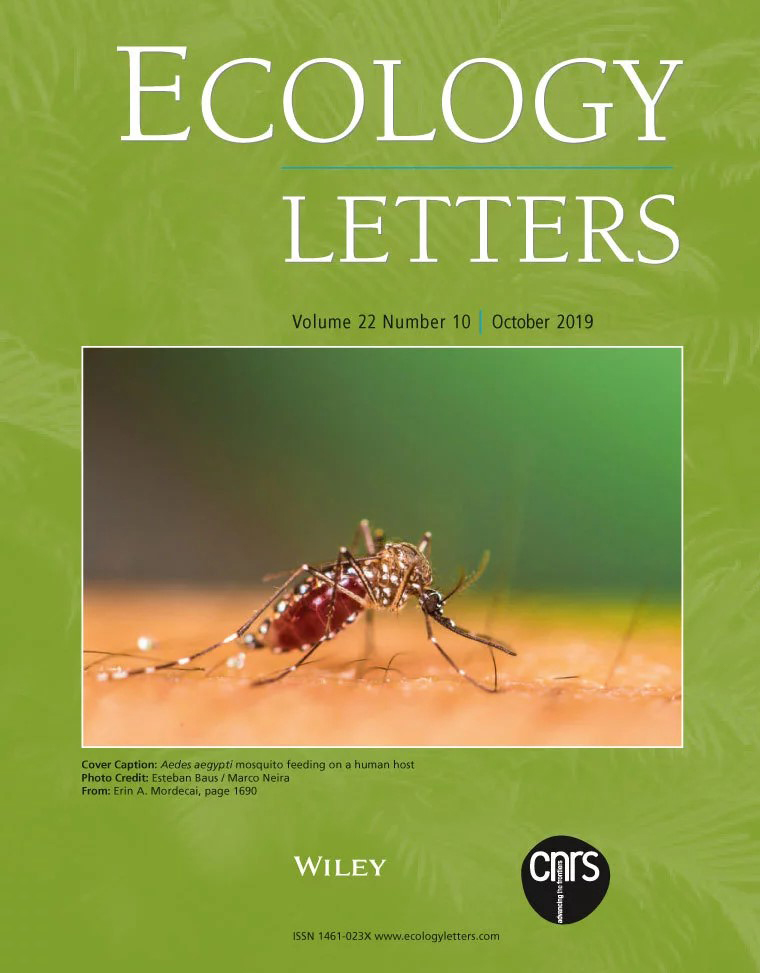By: Jordan Ramirez Puckett (Student at Ohio University)

Ecology Letters cover, October issue, 2019. Picture credits: Esteban Baus
The belief that mosquito-borne disease thrives in the warmest and wettest weather conditions is a common misconception in held in popular culture and literature. While temperature is a key factor in the mosquito lifecycle and the rate of disease transmission, warmer weather does not mean an increase in pathogen transmission in all cases. Through modeling, researchers have shown that the effects of temperature is non-linear. Diseases such as Zika, dengue, and malaria each have their own optimum temperature for transmission. Therefore, the question becomes how global warming will affect the spreading of mosquito-based illnesses.
Diseases such as dengue, Zika, and Ross River viruses have high thermal optima. This implies that climate warming may increase the geographical area affected by these viruses. Climate change may also increase the seasonal range for contracting these viruses. In contrast, malaria and West Nile virus has lower thermal optima. Therefore, it is possible that climate warming will shift where and when these diseases occur.
Climate warming is not the only environmental change that may affect mosquito-borne illnesses. Shifts in temperature from year to year, as well as changes in rainfall, humidity, and other meteorological factors could have an effect in the spreading of these diseases. These predictions are further complicated with a lack of understanding on how human behavior will shift with global warming. Human responses to global warming, such as changes in agricultural practices, migration, housing, and water storage may affect the transmission of these viruses as well.
The researchers are looking to create new models that incorporate temperature changes into their work. Their next steps will also be investigating how climate adaptation and migration affect predictions for the transmission of mosquito borne illnesses. This research is essential to determine how to prevent these illnesses for future generations.
The article, ¨Thermal biology of mosquito-borne disease¨ was published by Ecology Letters, 08 July 2019



